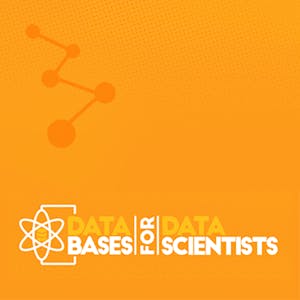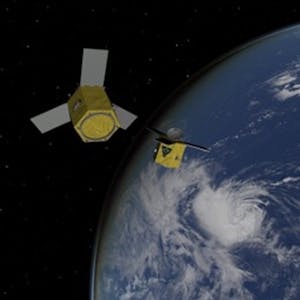Databases for Data Scientists
About this Specialization
Whether you are a beginning programmer with an interest in Data Science, a data scientist working closely with content experts, or a software developer seeking to learn about the database layer of the stack this specialization is for you! We focus on the relational database which is the most widely used type of database. Relational databases have dominated the database software marketplace for nearly four decades and form a core, foundational part of software development. In this specialization you will learn about database design, database software fundamentals, and how to use the Structured Query Language (SQL) to work with databases. The specialization, will conclude with an overview of future trends in databases, including non-relational databases (NoSQL) and Big Data. Upon completion of this specialization you will be well prepared to design and create efficient and effective relational databases, fill them with data, and work with them using SQL.Created by: University of Colorado Boulder

Related Online Courses
Unlock Your Marketing Potential with Copilot\\n\\nIn today\'s fast-paced, data-driven marketing landscape, staying ahead requires more than just creativity; it demands efficiency and precision. Our... more
This is a self-paced lab that takes place in the Google Cloud console. In this lab, you will learn how to build and deploy an agent (model, tools, and reasoning) using the Vertex AI SDK for... more
Welcome to the \"Machine Learning and NLP Basics\" course, a comprehensive learning resource designed for enthusiasts keen on mastering the foundational aspects of machine learning (ML) and natural... more
This specialization studies spacecraft relative orbits. This is of interest to mission scenarios including rendezvous and docking, inspection circumnavigation trajectories, on orbit assembly, space... more
Master the art of process improvement with the Lean Six Sigma Green Belt course. Designed to equip you with the tools and techniques to identify inefficiencies, reduce waste, and drive measurable... more








